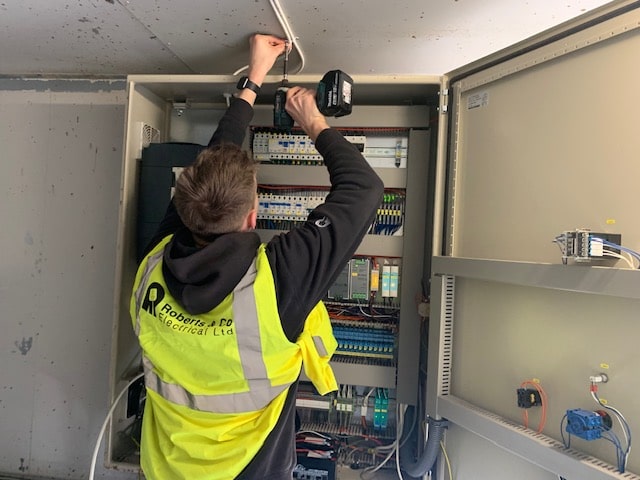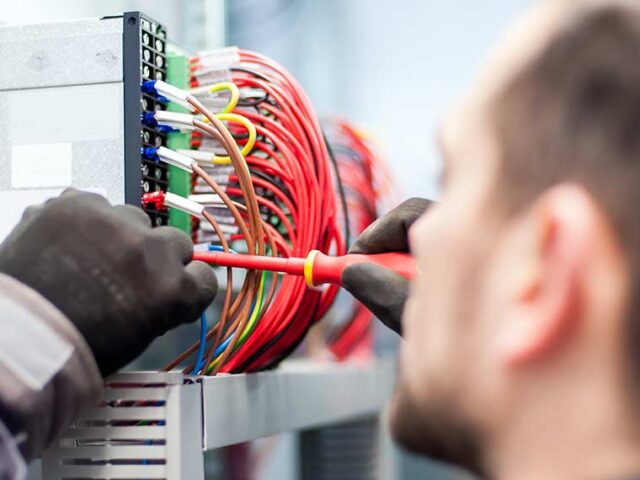Selecting the right electrician is crucial for ensuring the safety and efficiency of your electrical systems. Whether you need a simple repair, a major installation, or an emergency service, choosing a qualified and reliable electrician can save you time, money, and stress. This comprehensive guide will help you understand the key factors to consider when hiring an electrician, ensuring you make an informed decision that meets your specific needs.
Understanding Your Electrical Needs
Before you start searching for an electrician, it’s important to clearly define your electrical needs. This will help you communicate effectively with potential electricians and ensure they have the expertise required for your project. Consider the following:
- Scope of Work: Are you looking for minor repairs, such as fixing a faulty switch or outlet, or do you need major installations, like wiring a new home or office?
- Special Requirements: Do you have any special requirements, such as installing energy-efficient lighting, smart home systems, or specialized equipment?
- Urgency: Is the work routine or an emergency? Emergency services may require electricians who offer 24/7 availability.
Key Qualifications and Certifications
When choosing an electrician, verifying their qualifications and certifications is crucial. Here are the main credentials to look for:
- Licensing: Ensure the electrician is licensed in your state or region. A valid license indicates they have met the necessary training and safety standards.
- Insurance: A reputable electrician should have liability insurance and worker’s compensation insurance. This protects you from potential liabilities in case of accidents or damages during the job.
- Certifications: Look for additional certifications, such as those from the National Electrical Contractors Association (NECA) or the International Brotherhood of Electrical Workers (IBEW), which demonstrate advanced knowledge and adherence to industry standards.
Experience and Expertise
Experience plays a significant role in the quality of electrical work. Consider the following factors:
- Years in Business: An electrician with several years of experience is likely to have a proven track record and a wealth of knowledge.
- Specialized Experience: Depending on your needs, you may require an electrician with specific expertise, such as residential, commercial, or industrial electrical work.
- Portfolio of Work: Ask for examples of similar projects they have completed. A portfolio or references can provide insight into their competency and reliability.
Reputation and Reviews
A good reputation is often a reliable indicator of quality service. Here’s how to assess an electrician’s reputation:
- Online Reviews: Check online platforms such as Google, Yelp, and Angie’s List for customer reviews. Pay attention to both positive and negative feedback and note how the electrician responds to complaints.
- References: Ask the electrician for references from past clients. Contact these clients to inquire about their experience and satisfaction with the work performed.
- Word of Mouth: Recommendations from friends, family, or colleagues can be valuable. Personal experiences can provide a trustworthy source of information.
Cost and Estimates
Cost is an important consideration, but it should not be the sole deciding factor. Here’s how to approach the cost aspect:
- Obtain Multiple Quotes: Get estimates from at least three different electricians. This will give you a sense of the average cost and help you identify any unusually high or low bids.
- Detailed Estimates: Ensure that each quote is detailed, outlining the scope of work, materials, labor, and any additional fees. This helps avoid hidden costs and allows for a clear comparison.
- Value Over Cost: Consider the value you are getting for your money. Sometimes a higher upfront cost can be justified by higher quality work and long-term savings.
Communication and Professionalism
Effective communication and professionalism are key to a smooth working relationship. Evaluate these aspects:
- Responsiveness: How quickly does the electrician respond to your inquiries? Prompt responses indicate reliability and respect for your time.
- Clarity and Transparency: The electrician should be able to explain the work, costs, and timeline in clear, understandable terms. Transparency builds trust.
- Professional Conduct: Observe their conduct during initial interactions. Professionalism includes punctuality, courteous behavior, and a neat appearance.
Guarantees and Warranties
Reliable electricians stand by their work. Inquire about guarantees and warranties they offer:
- Workmanship Guarantee: A guarantee on workmanship shows confidence in their skills and assures you of quality service.
- Material Warranties: Ensure that any materials or parts used come with a warranty. This protects you against defects or premature failure.
- Follow-Up Services: Check if the electrician offers follow-up services or maintenance checks post-completion. This can be particularly important for larger installations.
Legal and Safety Compliance
Electrical work must comply with local codes and safety regulations. Ensure your electrician adheres to these standards:
- Code Compliance: Verify that the electrician follows local building codes and regulations. Non-compliance can result in fines and unsafe installations.
- Safety Protocols: The electrician should prioritize safety, using appropriate safety gear and procedures to protect both their workers and your property.
- Permits: Ensure that the electrician obtains necessary permits for the work. This is typically required for major installations and ensures the work is inspected and approved by local authorities. If you want to find great tips and information about choosing the right electrician, be sure to visit www.abacusplumbing.com/electrician/whole-house-surge-protection/ to learn more.

Energy Efficiency and Sustainability
If you’re interested in energy-efficient solutions, discuss these options with your electrician:
- Energy-Efficient Lighting: Consider installing LED lighting, which consumes less power and lasts longer than traditional bulbs.
- Smart Home Systems: Explore smart home technologies that allow for better control and energy management of your electrical systems.
- Renewable Energy: If applicable, discuss the possibility of integrating renewable energy sources, such as solar panels, into your electrical system.
Final Selection and Agreement
After considering all the above factors, you should be ready to make an informed decision. Here are the final steps:
- Review All Information: Carefully review all the information you have gathered, including qualifications, estimates, references, and reviews.
- Ask Final Questions: Don’t hesitate to ask any final questions to clarify details or address concerns.
- Sign a Contract: Once you have selected an electrician, ensure all terms are clearly stated in a written contract. This should include the scope of work, timeline, costs, payment terms, and any warranties or guarantees.
Conclusion
Choosing the right electrician is essential for the safety and efficiency of your electrical projects. By carefully considering qualifications, experience, reputation, cost, communication, guarantees, compliance, and energy efficiency, you can find an electrician who meets your needs and ensures high-quality work. Taking the time to make an informed decision will provide peace of mind and a successful outcome for your electrical projects.

